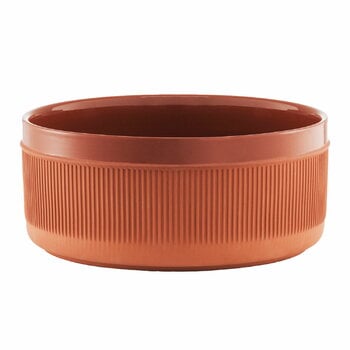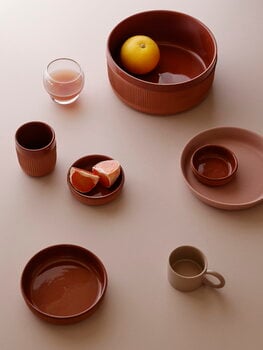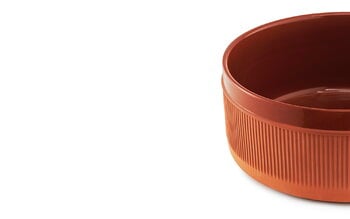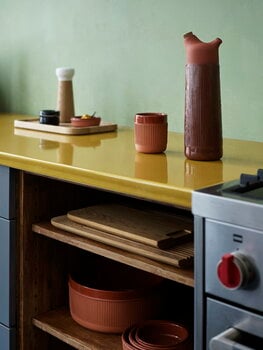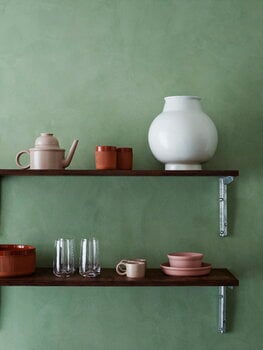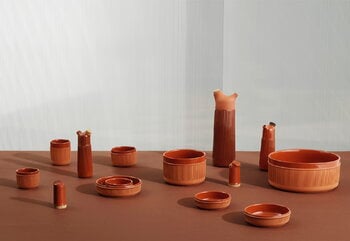The Junto bowl, designed by Simon Legald for Normann Copenhagen, was inspired by a traditional Spanish carafe named botijo. Just like traditional botijos, Junto bowls are made of terracotta clay that gives them a rustic, warm character. Due to the material, the shade of the bowl might also vary slightly, amplifying the hand-made feel of the design: the reddish hue might tend to a warm orange or to a slightly darker brown.
The dynamic appearance of the Junto collection comes from the alternation of different textures: the tableware combines both matt and glazed as well as smooth and grooved surfaces. Junto brings a groovy, relaxed touch of Southern European atmosphere to Scandinavian interiors and all kinds of table settings.
